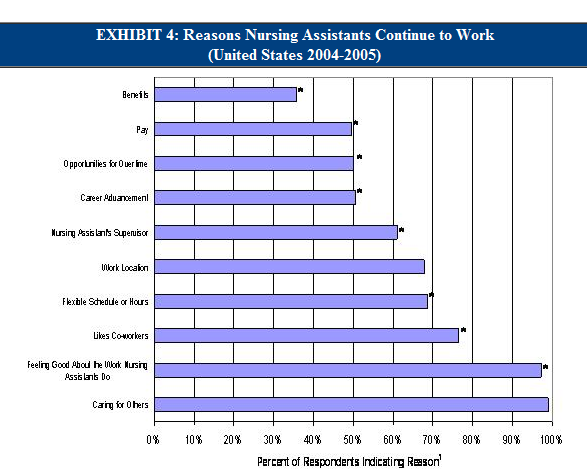To become a Certified Nursing Assistant, you need to pass a certification exam. The CNA exam tests both clinical proficiency and conceptual knowledge with a written multiple-choice section and a practical section. Various sample tests can be found online, and other study materials, such as practice books and textbooks.
To learn more about the exam, click on the links below to jump to a more detailed overview.
- What Is The Certified Nursing Aide Competency Exam?
- How Is The CNA Test Structured?
- How Do I Study For The CNA Exam?
- What If I Don’t Pass The Exam?
- What Resources Are Available To Help Me Prepare?
What Is The Certified Nursing Aide Competency Exam?
The Certified Nursing Aide Competency Exam is designed to prepare future CNAs to work in the medical field. The CNA exam also goes by the name of Nurse Aide Assessment Examination. An accredited CNA training program helps prepare students to successfully pass the exam.
The CNA exam measures your skills and competencies. You’ll learn those skills while enrolled in a CNA certification program. It’s a good idea to keep all of your course materials to help you prepare for the test. Your instructors will provide you with study materials, and possibly administer practice tests to help you prepare.
How Is The CNA Test Structured?
The Certified Nursing Assistant exam is divided into two sections, a written examination and a clinical skills test. You must successfully pass both sections to earn certification. Each state has different rules regarding the CNA exam, so make sure you research your state’s requirements.
We’ve broken down the exam to help you best prepare:
CNA Exam: The Practical Section
On-the-job skills make up the practical portion of the CNA exam. The test proctor will observe you while you demonstrate skills routinely used by CNAs. This is a very important part of the exam. It’s a great idea to say aloud each step as you complete this portion of the test.
Your score is generated based on how well you perform the tasks. You’ll likely demonstrate these skills on a mannequin or with a fellow exam student. Some of the skills that may be tested include:
- Personal Care: Bathing and grooming patients is an important part of a CNA’s job. These skills will be assessed in the clinical portion of the CNA exam.
- Use of Restorative Devices: You need to know how to use and help others use mobility aids, such as walkers, crutches, and prostheses. You’ll also need to have knowledge of devices that generally improve a patient’s functions or lifestyle, such as catheters or other bowel and urinary control or training fixtures.
- Mental Health Needs: Knowing how to address a patient’s mental health needs, and how to interact with patients who have schizophrenia, dementia, or psychosocial disabilities, is crucial, especially if you plan to be a CNA in a facility that specializes in nursing care for the mentally disabled.
- General Nursing Skills: Maintaining a clean environment, washing hands (yours and patients’), recognizing symptoms and abnormalities in routine; all of these are required of CNAs regularly, and should be performed by rote.
CNA Exam: The Written Section
The following are some questions from a sample of the written portion of the CNA exam:
- A resident [of a nursing home] who is lying in bed suddenly becomes short of breath. After calling for help, the nurse aide’s next action should be to:
– ask the resident to take deep breaths
– take the resident’s vital signs
– raise the head of the bed
– elevate the resident’s feet - When a person is admitted to the nursing home, the nurse aide should expect that the resident will:
– have problems related to incontinence
– require a lot of assistance with personal care
– experience a sense of loss relating to the life change
– adjust more quickly if admitted directly from the hospital - The doctor has told the resident that his cancer is growing and that he is dying. When the resident tells the nurse aide that there is a mistake, the nurse aide should:
– understand that denial is a normal reaction
– remind the resident that the doctor would not lie
– suggest the resident ask for more tests
– ask if the resident is afraid of dying
Some questions are designed to test the intuition and empathy of the exam-taker, and there may not be an actual right or wrong answer. Other questions are more straightforward. Either you know the answer, or you don’t.
How Do I Study For The CNA Exam?
There are many online forums and other resources that may be useful to you. Some of these forums include advice from current and/or former CNAs. These forums can be especially useful with helpful tips. Some of the tips provided include:
- Talk Through It: You may find it useful to say test questions out loud as if talking to a real patient or coworker. For example, saying “OK, sir, now I’m going to wash my hands before I empty your catheter bag,…” et cetera, helped the test-taker remember what they were doing, and to do everything in the right order.
- Take Your Time: Pace yourself and take your time. Rushing through questions is never a good idea. If you start to feel anxious, pause for a moment to breathe.
- Take Practice Exams: There are practice exams available online. Practice exams are a great way to prepare for the test, especially if you time yourself and keep track of questions you struggled with.
It’s also a great idea to make flash cards and to purchase a test preparatory book. You’ll want to spend a few hours a day reading through test questions. You can never over-prepare!
What If I Don’t Pass The Exam?
Even if you feel as prepared as can be, there’s a chance you might not pass the test. But don’t get discouraged. The good news is that you can retake the exam, and hopefully the second time around, you’ll know what to expect and pass without a doubt.
Closely examine your mistakes if you need to retake the CNA exam. Highlight the questions you got wrong so you’ll know what to study. You’ll also want to study more, and ask for advice from CNAs on how to best prepare for the exam. Remember that each state has different licensing requirements. You can find this information by visiting your state nursing board’s website.
Typically, you must retake the exam in two years. If you choose to wait, there’s a chance you’ll need to repeat a CNA training program. You also have three chances to retake the CNA exam, so hopefully you’ll pass it on your second try.
The best advice is to not get discouraged. Just remind yourself why you choose to become a CNA in the first place. It’s a job worth doing with great reward. The U.S. Department of Health and Human Services took a survey about CNA job satisfaction, and the results yielded many reasons why CNAs are attached to their jobs. (Source: U.S. Department of Health and Human Services, 2005.)

What Resources Are Available To Help Me Prepare?
If you’re going to pass, you’ll want to use the best resources available. There’s a lot of information on the web, but some of the resources are outdated or aren’t useful. We’ve sorted through some of these resources to help you prepare for the exam:
- NNAAP Nurse Aide Practice Written Exam Packet: Through this thirteen-page PDF file, you can try out a practice written exam (including an answer sheet), learn more about the NNAAP content outline, and take advantage of the practice exam answer key.
- Illinois State Nursing Exam Practice Test: This is a sample test offered entirely online that allows you to choose the number of questions, and automatically checks your answers. There is no time limit on this practice test.
- Study Guide Books: There are dozens of books that will help you prepare for the exam. You can find many of these books on Amazon, or even at your local library. (Just make sure the books are up-to-date.)
- O-Net Job Summary: For a comprehensive list of skills you’ll need to know, and may be tested on, as well as equipment you’ll need to be proficient with, check out O-Net Online. The Bureau of Labor Statistics links to O-Net as the resource for details on job duties for various positions.
- CNA Facts: The State of Illinois provides a long list of facts and resources that CNAs need to know about test taking, maintaining their credentials, and finding employment as a CNA. Some of the information is state-specific, but a lot of it is generally applicable to CNAs anywhere.
An accredited CNA program will help you prepare for the test. But it’s always a good idea to have other resources to help you get started on your career as a CNA.
The programs listed below offer a variety of options for both working professionals and full-time students.

